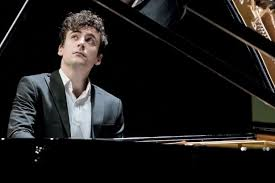St Clement’s Church, Hastings, Sunday 1 December 2019
A gently reflective start to Advent, drawing on baroque scores based on texts for the liturgy for the start of the season. The pastoral underpinning of the Christmas story was secured from the start with the Adagio from Pez’ Concerto Pastorale – its combination of recorders and strings being highly effective. Buxtehude’s arrangement of In dulci jubilo is just different enough from the familiar version to be challenging but close enough to feel comfortable. His setting of Kommst du, Licht der Heiden? followed for full choir before Schutz’ beautiful setting of Rorate Coeli for two sopranos and bass.
Possibly the finest work in the first half was Buxtehude’s Alles was ihr tut which is mellifluously tuneful and uplifting, while spreading the setting across a wide range of voices. The final work before the interval took us back to sixteenth century England and Byrd’s unaccompanied masterpiece Ne irascaris Domine.
After the interval we had two more substantial works – Bach’s Cantata BWV 62 Nun komm, der Heiden Heiland and Telemann’s Machet die Tore weit. They made a convincing pair, with the richer late baroque harmonies very much in evidence from the Ensemble Orquesta Baroque and strong continuo playing.
Soloists were drawn from the chamber choir and were effective even when the tessitura proved to be challenging. Marcio da Silva not only led the whole evening but played recorder and sang bass solo.
The acoustic in St Clement’s is ideal for baroque ensembles but we will be back in St Mary’s for the traditional carol evening in two weeks’ time.

